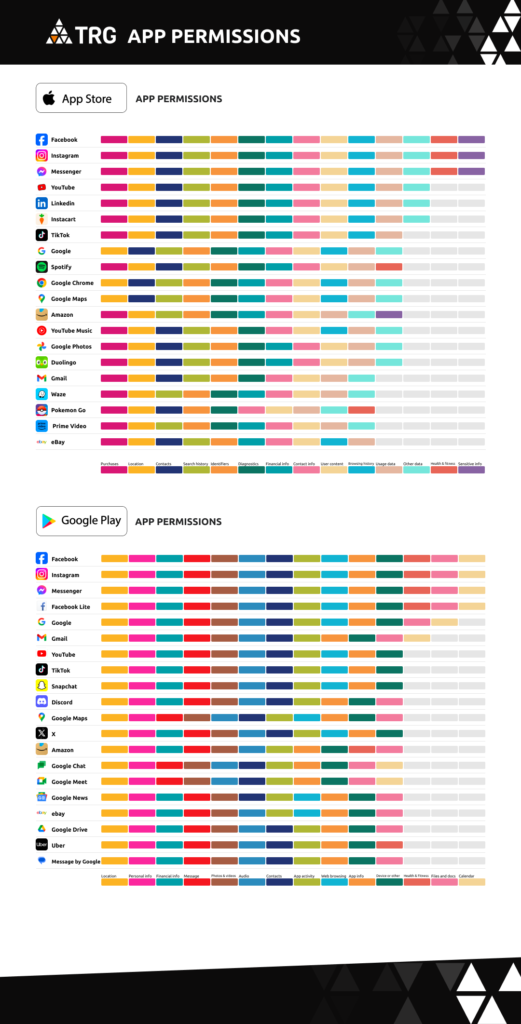How much data do you give away to use your favorite apps? You might be surprised by the results of this new study.
A new study reveals that the apps we readily download on our phones are voracious consumers of our personal data. As part of it, the top 100 apps on both the iOS App Store and Google Play Store were analysed to uncover which require the most permissions to access user information.
The results, as found by TRG Datacenters, show the Meta (formerly Facebook) family of apps – Facebook, Instagram, and Messenger – top the list on both platforms. These apps request access to 14 different types of user data in order to function fully. This includes personal details like location, browsing history, contacts, and more.
Other apps high on the list include LinkedIn, YouTube, and Instacart, each requiring 12 permissions. Though professional network LinkedIn refrains from seeking browser history access.
Of the top 20 iOS apps, nearly half (9 out of 20) ask for 11 different data points from users. Google apps on iOS are less invasive, along with Amazon Shopping. In contrast, the leading social media apps demand significantly more access.

Interestingly, wildly popular video app TikTok asks for just 11 iOS permissions. This is 3 fewer than rival platforms Facebook and Instagram.
Across the top 20 iOS apps, the average number of requested permissions is 11.35. This indicates users hand over large amounts of personal information just to use their favourite apps.
On the Android side, Google Play Store apps exhibit even greater data hunger. The Google app itself demands 13 permissions there, compared to 11 on iOS. Social media app X (now called Twitter) needs 11 Android permissions versus just 7 on iPhones.
The average for top Google Play Store apps climbs to 11.7 requested permissions. This implies Android users sacrifice more data privacy than iOS users for the same apps.
“The depth of data we grant apps is astonishing,” said Chris Hinkle, CTO of TRG Datacenters. “With over 85% of people owning a smartphone with around 80 apps, marketers and hackers have access to a huge trove of information.”
“We advise limiting the permissions each app can use. While more access improves app functionality, safeguarding personal data is paramount,” Hinkle added.

Source:indianexpress.com

